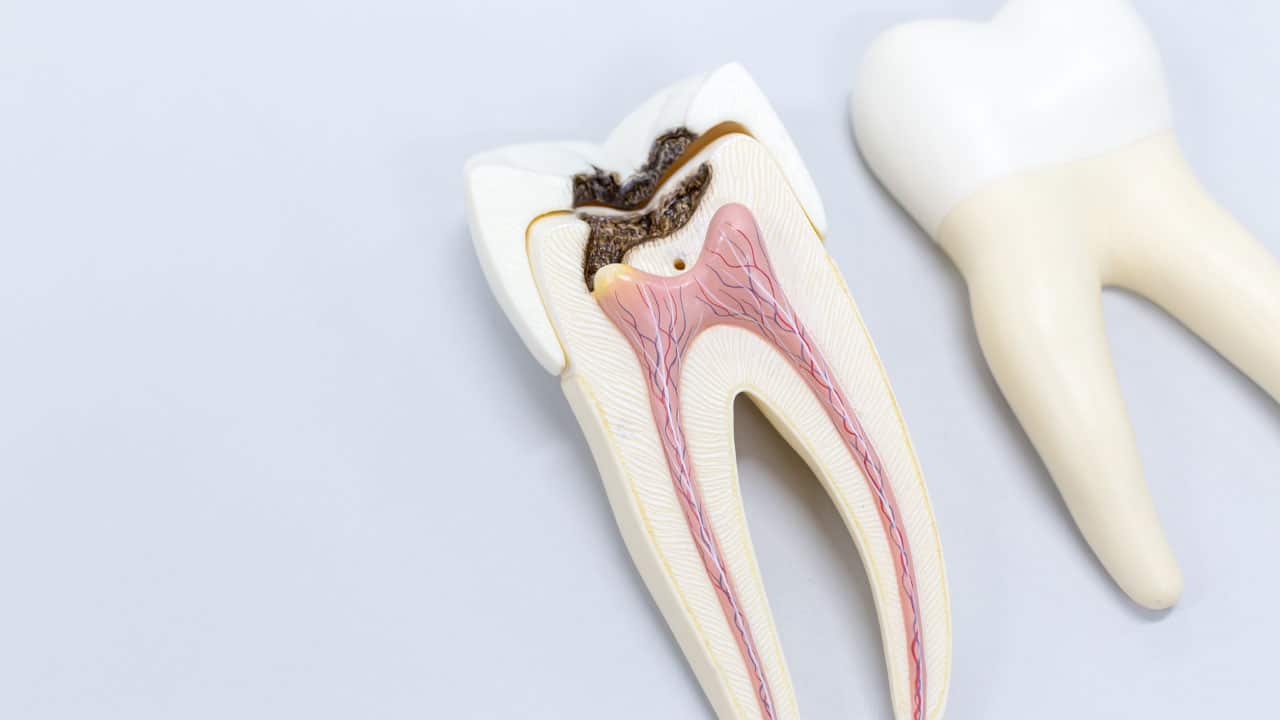Dental Crowns for Root Canal-Treated Teeth: Why They’re Recommended

When it comes to dental procedures, root canals have a reputation for being painful and anxiety-inducing. But for many individuals, a root canal is the last line of defense to save a badly damaged or infected tooth.
Following a root canal procedure, the treated tooth must have the support it needs to restore its strength and functionality. Learn why dentists frequently prescribe dental crowns to protect root canal-treated teeth.
Strengthens the Root Canal-Treated Tooth
A tooth that has undergone a root canal is weaker than a natural tooth. The dental pulp, which contains nerves and blood vessels, is removed during the root canal procedure. This makes the tooth more susceptible to fractures and other kinds of damage.
A dental crown serves as a protective cap, encasing the entire tooth and preventing it from further damage or deterioration. By supporting the tooth’s structural integrity, a crown allows you to use your treated tooth the same way as your remaining natural teeth.
Restores Natural Function
The primary goal of a root canal is to save the natural tooth. Deep decay can mean that you experience pain or discomfort when chewing, biting, or brushing, making it challenging for you to eat, speak, or perform oral hygiene tasks properly. And once you’ve had a root canal, your tooth may become brittle, exacerbating these issues.
Dental crowns restore your tooth’s full functionality. A crown provides protection and strength to combat brittleness and allows you to enjoy your favorite foods without discomfort or limitations.
Aesthetic Appeal
In addition to restoring function to the tooth, dental crowns are designed to look natural. They can be customized to match the color and size of the rest of your teeth, ensuring a seamless and aesthetically pleasing smile. Maintaining the appearance of your natural teeth, especially on your “social six” front teeth, can help you feel more confident when you smile.
Prevents Further Infections
A dental crown doesn’t just protect the tooth from physical damage; it also seals the tooth from bacteria and prevents re-infection. Without a crown, the treated tooth is vulnerable to new infections, potentially leading to root canal re-treatment. Crowns act as a barrier, reducing the risk of re-infection and promoting long-term oral health.
Durability
Dental crowns are known for their durability. They are typically made from tough materials like composite resin, porcelain, or ceramic but can also be made from metals like gold. When properly cared for, they can last for 10 to 15 years, depending on the material used for the crown.
Comfort and Pain Reduction
Infected root canals are typically caused by severe decay or tooth trauma, both of which can be extremely painful. A root canal treatment removes the source of the pain, including all the nerve endings. The procedure is also performed under local anesthesia so you won’t feel any discomfort during the procedure; you may just feel slight pressure from the handpiece.
After the dental crown is installed, it provides an even biting surface, which minimizes sensitivity and discomfort while chewing or when the treated tooth comes into contact with hot or cold substances.
Preserving Your Smile and Your Oral Health
Dental crowns are recommended for root canal-treated teeth to provide strength, restore functionality, enhance aesthetics, prevent further infections, offer durability, and reduce discomfort. By choosing to get a dental crown, you’re not just saving your tooth, but you’re also investing in your long-term health and the appearance of your smile.
If you have a persistent toothache or suspect you may need a root canal treatment, contact Hinsdale Dental at (630) 323-5200. Our dental professionals will discuss the treatment and the option of a dental crown to ensure the best outcome for your oral health and well-being.
Return to Blog